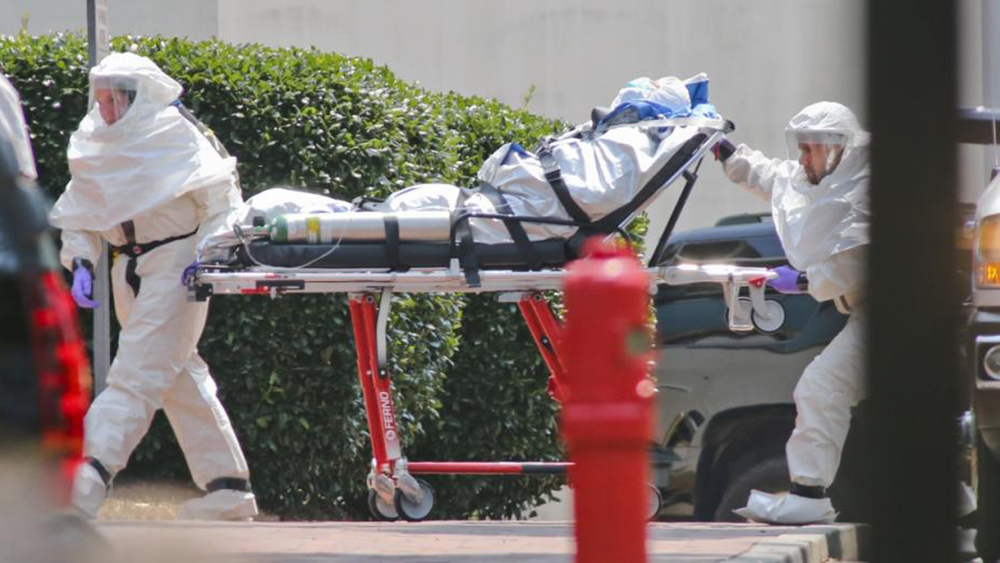Infectious Diseases faculty collaborate actively with other top-rated local and regional programs, including the Emory Vaccine Center, the Emory Department of Microbiology and Immunology, the Emory Rollins School of Public Health, and the Centers for Disease Control and Prevention (CDC), in addition to numerous centers in the United States and abroad.
You can view ongoing trials in Infectious Diseases by visiting Emory Clinical Trials.
Research Programs
- Antibiotic Resistance Center
- CDC-STDs
- Center for AIDS Research
- Kwazulu-Natal Drug Resistance Surveillance Study
- Emerging Infections Program
- Emory Clinical Trials Unit
- Emory T32 Training Program in Translational Research to End the HIV Epidemic
- Hope Clinic - Vaccine Research
- Prevention Epicenter of Emory and Collaborating Healthcare Facilities (PEACH)
- Ponce Clinical Research Site
- Infectious Diseases Clinical Research Collaborative
- Integrating HIV and heart health in South Africa (iHEART-SA) project
- Research in HIV and Women's Health and Y This Harmony Matters (RHYTHM)
Basic Science Research Opportunities
Basic scientific research within the Division of Infectious Diseases focuses on:
- Mechanisms and control of antibiotic resistance
- Treatment of hospital-acquired infections, such as Clostridium difficile (C. difficile)
- Pathogenesis of infectious diseases, such as bacterial meningitis
- Basic and translational research in HIV
- Immunology of host defenses and vaccine development
Major areas of investigation of bacterial pathogens include:
- Analysis of virulence mechanisms of invasive bacterial pathogens
- The role of endogenous bacterial CRISPR/Cas9 systems in host immune evasion and targeted DNA editing
- Genomics of bacterial virulence and antibiotic resistance; study of the microbiome
- Studies of the molecular mechanisms of antibiotic resistance
- Research into the role of transposable elements and repetitive nucleotide sequences in microbial pathogenesis and agents associated with bioterrorism
- Metagenomics of pathogens for basic and clinical research
The Division of Infectious Diseases participates in graduate programs and research in microbiology and molecular genetics, immunology and molecular pathogenesis, as well as population biology, ecology, and evolution.
Additional opportunities are available for basic science research in:
- Toxin-mediated infections
- Intracellular pathogens
- Influenza
- Hemorrhagic fever viruses
- Zoonotic pathogens
- Parasites and fungi
- Population biology
- Genomics and metagenomics
Emory Vaccine Center and Emory Hope Clinic
The Emory Vaccine Center receives more than $24 million in sponsored research funding. Primary program areas in basic science and translational research currently include HIV/AIDS, tuberculosis, malaria, Hepatitis C virus (HCV), cytomegalovirus, gamma-herpes viruses, influenza and DNA and protein-conjugate vaccines.
The Hope Clinic, a unit of the Emory Vaccine Center directed by Mark Mulligan, MD, conducts clinical research, vaccine trials and critical research on vaccine policies. A number of additional opportunities for basic scientific research are available in the Graduate Divisions of Microbiology and Immunology and through the Centers for Disease Control.
Clinical and Diagnostic Microbiology
Emory University Hospital and Grady Memorial Hospital have outstanding resources in diagnostic and clinical microbiology.
Areas of focus include:
- Development and assessment of diagnostic tools based on nucleic acid detection
- Optimization of laboratory procedures for diagnosis of mycobacterial infections
- Assessment of the accuracy of automated systems for detection of antimicrobial resistance
Clinical/Translational Research Opportunities and Global Health
Major areas of focus for clinical/translational research in infectious diseases include:
- HIV/AIDS; access to and retention in care
- Emerging Infections Program
- Sexually transmitted infections
- C. difficile infections; prevention and treatment modalities
- Tuberculosis
- Vaccine research
- Healthcare epidemiology and healthcare infections
- Transplant Infectious Diseases
- Emerging infectious diseases
- Global health
- Bioterrorism
Clinical research training opportunities are enhanced by the presence of Clinical Interaction Sites at the Emory-affiliated hospitals.
In addition, opportunities for clinical and translational research training are enhanced by the presence of the NIH-funded CTSA award (Georgia Clinical and Translational Science Alliance, or CTSA) which was awarded to Emory University in collaboration with Morehouse School of Medicine and the Georgia Institute of Technology. A major component of the ACTSI is the Research Education, Training and Career Development program, which includes the Master of Science in Clinical Research (MSCR).


